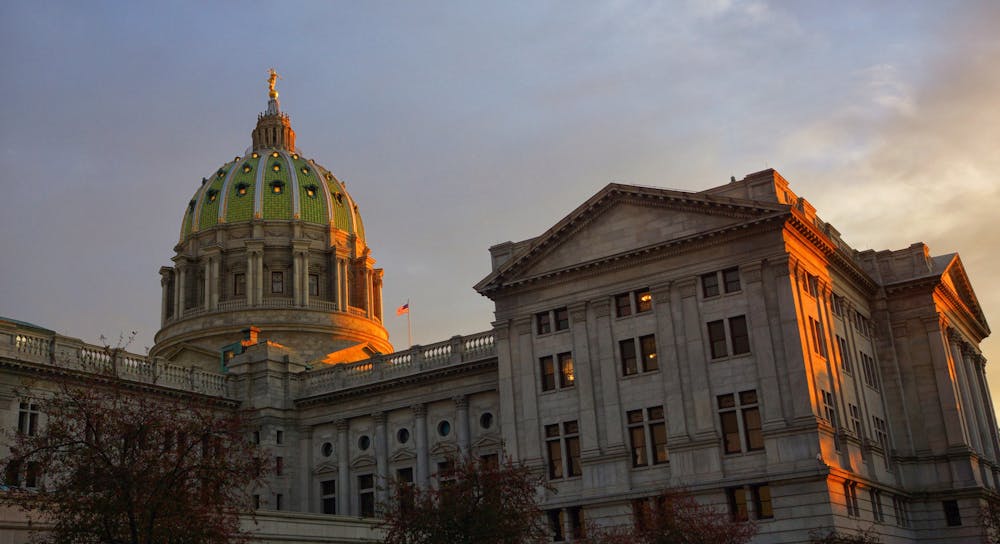
Democrats in the Pennsylvania House of Representatives are continuing their push to legalize recreational marijuana in the commonwealth.
Pennsylvania state Rep. Rick Krajewski (D-Philadelphia) and Rep. Dan Frankel (D-Allegheny) announced a new bill titled "Legalizing and Regulating Adult-Use Cannabis" in December 2024. In his February budget proposal, Pennsylvania Gov. Josh Shapiro also expressed support for the legalization of adult-use cannabis, saying that it would generate $1.3 billion in revenue within the first five years.
If passed, Pennsylvania would become the 25th state to legalize recreational marijuana, joining states like New York, California, and New Jersey.
“Nearly half of U.S. states have already legalized recreational marijuana, including nearly all of our neighbors,” Speaker of the House Rep. Joanna McClinton (D-Philadelphia) wrote in a statement to The Daily Pennsylvanian. “Right now, many Pennsylvanians are simply driving to New Jersey or Maryland to purchase marijuana legally.”
Part of Shapiro’s revenue projection is based on the expectation that, once cannabis is legalized in Pennsylvania, residents will no longer need to cross state lines to purchase it.
“We have a lot of farmers and farmland here in Pennsylvania,” Rep. Jordan Harris (D-Philadelphia) told the DP. “We should be growing and processing and reaping the benefits here within the state. If we get this to the governor’s desk, I think surrounding states will see a decrease in their revenue because that money will be staying in Pennsylvania.”
The bill drafted by Krajewski and Frankel proposes allocating a significant portion of the revenue generated from marijuana legalization to communities impacted by the criminalization of cannabis. This includes funding for workforce development for formerly incarcerated individuals, legal aid, and youth support.
For Krajewski, an equally important aspect of the bill is its emphasis on promoting public health.
“By legalizing, we can have more responsible usage,” Krajewski told the DP. “In terms of public health, when people buy stuff on the street or from smoke shops they don’t know what else is in the product or the potency amount. Legalization allows us to have protections over products.”
The bill also proposes selling recreational marijuana in state-owned stores rather than through the current medical dispensaries — similar to Pennsylvania's approach to state liquor stores.
“With the model of state stores, we would get hundreds of millions of dollars more in state revenue because we would have proceeds from tax revenue and sales revenue,” Krajewski said.
Harris explained that the state store model is effective because the framework can be easily adopted from Pennsylvania's existing state-run liquor store system. He also mentioned that utilizing an existing system may help reassure officials who are more reluctant about legalization.
Krajewski also told the DP that the bill would expunge any criminal records with cannabis-related charges. Additionally, people who are currently incarcerated would be able to request to have their sentences reviewed, with the possibility of release or commutation.
The bill, still in its early stages, is expected to face an uphill battle and will likely undergo several revisions as it moves through the House.
“This is a clearly polarized issue and Pennsylvania is currently a purple state,” Krajewski said. “Getting any kind of legislative process moving has been difficult because some people aren’t even willing to engage on it.”
Despite these challenges, supporters of the bill believe that legalization won't be as drastic of a change as some opponents fear.
“What folks need to understand is that we have had medical marijuana in Pennsylvania for quite some time now and we have not seen a steep increase in the need for police or anything like that," Harris said. "So people’s mindset shouldn't be 'We’re flipping a switch from a dry state to a legalized state.'"
The Daily Pennsylvanian is an independent, student-run newspaper. Please consider making a donation to support the coverage that shapes the University. Your generosity ensures a future of strong journalism at Penn.
Donate










